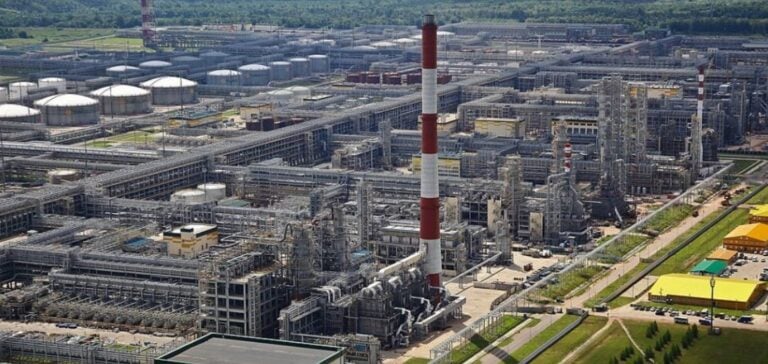Kuwait officially launched the Al-Zor refinery, located 90 kilometers from the capital. With a processing capacity of 615,000 barrels of crude oil per day, Al-Zor becomes one of the largest refineries in the Middle East. This expansion is a central element of Kuwait’s strategy to increase domestic and international refining capacity to 1.83 million barrels per day.
Historical refining capacity
At the inauguration ceremony, Kuwait’s Minister of Petroleum, Emad Mohammed al-Atiqi, pointed out that the capacity of the country’s refineries now stands at 1.415 million barrels per day.
“We have managed to achieve an unprecedented refining capacity of 1.83 million barrels per day, at home and abroad.” “Domestic refinery capacity stands at 1.415 million barrels per day.”
This significant increase from 600,000 barrels per day in 2021 marks a major milestone for Kuwait, a member of OPEC (Organization of the Petroleum Exporting Countries).
Long-term objectives
Kuwait aims to reach a production capacity of 4 million barrels per day by 2035. This ambition reflects the country’s desire to strengthen its position in the global oil market and diversify its refining capacities. The country currently operates three domestic refineries and has interests in facilities in Oman, Vietnam and Italy.
Investments and challenges
The Al-Zor refinery project, awarded in 2015 for $13.2 billion, has experienced delays due to the Covid-19 pandemic. Initially scheduled for 2019, the start of operations has been pushed back to 2022. This achievement, despite the challenges, demonstrates Kuwait’s resilience and commitment to the energy sector.
Economic and geopolitical implications
The increase in Kuwait’s refining capacity has significant economic and geopolitical implications. By increasing its production capacity, Kuwait can better meet global demand and strengthen its position within OPEC. This expansion could also have repercussions on oil prices and global supply strategies.
Future prospects
Kuwait continues to implement ambitious projects to meet its production targets. Increased refining capacity supports not only the national economy, but also Kuwait’s influence on the global energy market. With continued investment and strategic management, Kuwait is well positioned to become a leader in the oil refining sector.
The inauguration of the Al-Zor refinery marks a decisive step in Kuwait’s energy strategy. This achievement strengthens the country’s refining capacity and lays the foundations for future expansion in the global oil market.





















